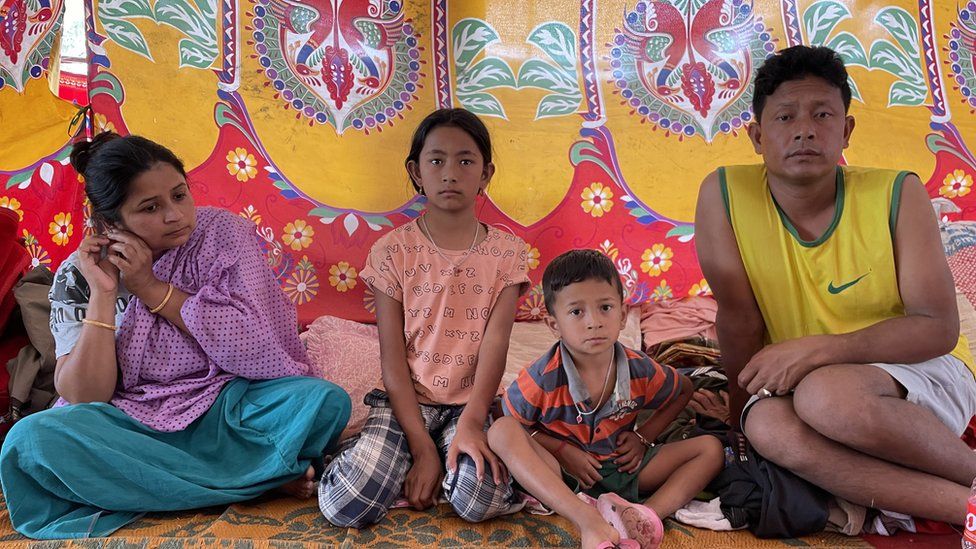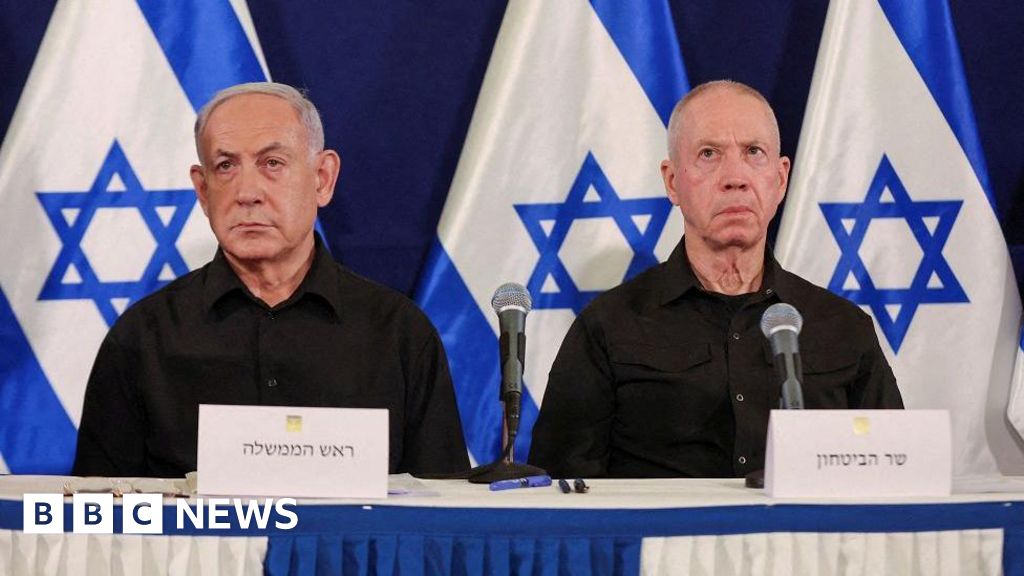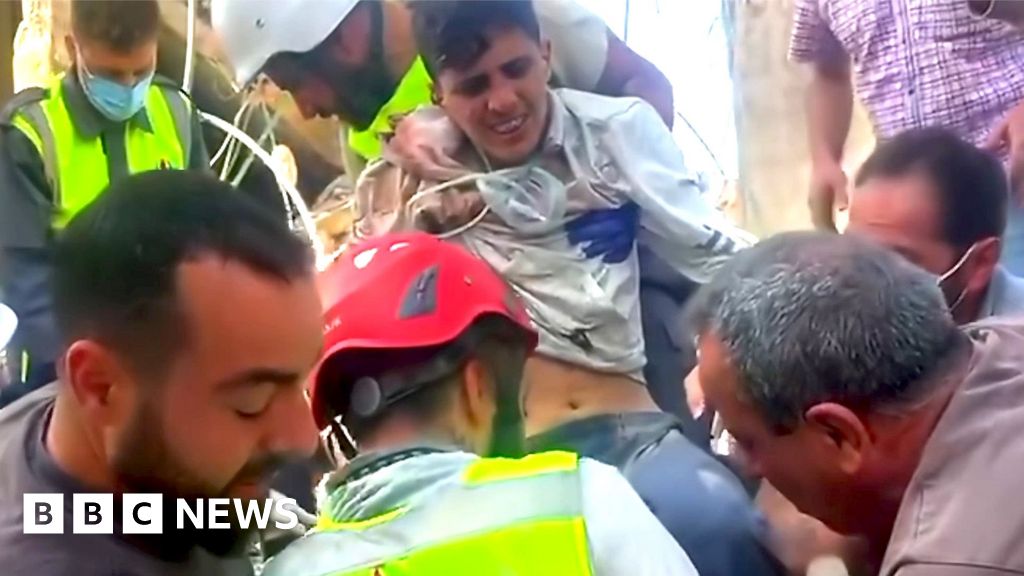ARTICLE AD BOX
 Image source, Manish Jalui/BBC
Image source, Manish Jalui/BBC
Basanta Singh says he and his family had to run for their lives when ethnic clashes erupted in Manipur last week
By Raghvendra Rao
BBC News, Manipur
"Everything has been destroyed. There's nothing left."
Sitting in a corner of a makeshift relief camp in Imphal's Pangei area, Basanta Singh tries hard to hold back tears as he talks.
Singh, along with his wife and two children, had to run for their lives from the Saikul area in India's northeastern state of Manipur when ethnic clashes erupted here last week.
Mr Singh belongs to the Meitei community and had been living in the hilly Saikul area - largely inhabited by the indigenous Kuki community - for over two decades. He ran a grocery store there.
When clashes began, he says he was advised by his Kuki friends to move out to a safer place.
"We have lived there for so long. We were on good terms with the Kuki people there," he says.
"Probably that is why some friends advised me to leave."
The goodwill Mr Singh thought he shared with the Kuki community did not prevent his shop from being looted by the mob.
"I had no option but to run. This is a civil war," he says.
Manipur saw widespread violence last week, following protests by indigenous communities - primarily the Kukis - against the demand seeking tribal status for the Meiteis.
Members of the Meitei community account for 53% of the state's population. Their inclusion in the Scheduled Tribes category will enable them to secure reservation in government jobs and in educational institutions.
Image source, Manish Jalui/BBC
Image caption,Houses were torched and vehicles set aflame during the widespread violence in Manipur last week
In addition, a Scheduled Tribe status would allow them access to forest lands. Communities already recognised as Scheduled tribes fear that granting tribal status to the Meitei community would not just eat into their own share of the reservation pie but will also endanger the forest lands they've lived on for centuries.
While the valley area in Manipur is largely inhabited by Meiteis, the hill areas are dominated by tribals - mainly Kukis. But small fractions of people from both communities live in areas dominated by the other. These were the people caught in the crossfire first when the violence began. Meiteis were targeted in Kuki-dominated areas and Kukis were targeted in places dominated by the Meiteis.
Entire villages were burnt down. Houses were torched, vehicles set aflame.
In a matter of hours, thousands of people like Mr Singh suddenly became homeless.
As the situation worsened, the Indian army and paramilitary forces were called in. Their first job was to evacuate people from both communities from areas where they were in the minority.
Mr Singh and his family were evacuated from the hilly Saikul area to the plains of state capital Imphal by the army and were provided shelter in a relief camp.
He says that things happened so fast that they could not carry anything other than the clothes they were wearing and a few pieces of jewellery.
"We had everything back there in Saikul. My children had their books and toys," he says in tears. "Ever since we came here, my son keeps asking me where his shoes are. He says he wants to play football but doesn't have shoes. It breaks my heart."
He says that he hasn't been able to sleep for days now. "How will I provide education to my children? I don't have any means to earn. There's no money, no home."
"How long can we live here? And where will we go from here. I keep thinking about this all the time," he adds.
Image source, Manish Jalui/BBC
Image caption,Ginlal says he and his family spent a day hiding in the forest before they were rescued by the army
He is not alone. Around 40km (24.8 miles) from Imphal, P Ginlal has sought refuge in a temporary relief camp set up in the premises of a church in Saikho village.
Ginlal is from the Kuki tribe and had to flee his home when a violent mob began torching his village.
"They burnt our houses," he says, fighting tears. "We escaped just in the nick of time. If we hadn't, we would be dead."
Ginlal says he and his family spent a day hiding in the forest before they were rescued and evacuated by the army.
He says timely action by the government could have saved them from this violence. "What is the government doing? Are we foreigners?" he asks.
Having retired from military service a few years ago, Ginlal says he ran his household mainly from the government pension he received.
"We [also] worked in the fields to make ends meet," he says. "Now, everything is gone. I don't know whether I'll ever be able to return to my village."
Ginlal is worried that his ageing mother may not be able to survive this ordeal. "I couldn't even carry her medicines when we fled," he says.
He wants the government to fix responsibility for what happened and punish those responsible. "The government should find out who is responsible for this mayhem. Why have homes been burnt?" he asks.
Ginlal is not optimistic about the future. He says that there can be no peace "if the government leaves its people to die". "The conflict will continue to simmer and people will keep acting out of vengeance," he fears.
As thousands remain displaced people in Manipur, affected members of both Kuki and the Meitei community are left with a feeling of helplessness and anger, unsure of what awaits them in future.
BBC News India is now on YouTube. Click here to subscribe and watch our documentaries, explainers and features.

 1 year ago
20
1 year ago
20








 English (US)
English (US)